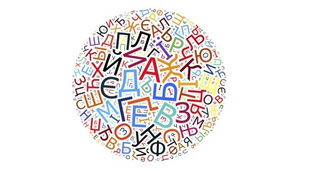- 2021
- December (1)
- March (87)
- February (60)
- January (35)
- 2020
- December (109)
- November (111)
- October (109)
- September (114)
- August (22)
- July (129)
- June (116)
- May (93)
- April (106)
- March (114)
- February (53)
- January (31)
- 2019
- December (37)
- November (72)
- October (52)
- September (43)
- August (65)
- July (55)
- June (14)
- May (55)
- April (72)
- March (28)
- February (1)
- January (12)
- 2018
- December (49)
- November (45)
- October (44)
- September (31)
- August (61)
- July (46)
- June (48)
- May (33)
- April (61)
- March (53)
- February (45)
- January (50)
- 2017
- December (46)
- November (56)
- October (60)
- September (20)
- August (56)
- July (61)
- June (58)
- May (28)
- April (44)
- March (57)
- February (54)
- January (42)
- 2016
- December (55)
- November (70)
- October (73)
- September (24)
- August (50)
- July (47)
- June (61)
- May (19)
- April (48)
- March (47)
- February (33)
- January (45)
- 2015
- December (43)
- November (39)
- October (53)
- September (55)
- August (19)
- July (47)
- June (28)
- May (26)
- April (54)
- March (55)
- February (29)
- January (30)
- 2014
- December (26)
- November (48)
- October (44)
- September (30)
- August (28)
- July (30)
- June (23)
- May (53)
- April (30)
- March (25)
- February (31)
- January (16)
- 2013
- December (23)
- November (29)
- October (34)
- September (12)
- August (15)
- July (23)
- June (12)
- May (24)
- April (12)
- March (14)
- February (22)
- January (15)
- 2012
- December (16)
- November (30)
- October (28)
- September (4)
- August (14)
- July (15)
- June (3)
- May (5)
- April (7)
- March (14)
- February (8)
- January (9)
- 2011
- December (8)
- November (17)
- October (17)
- September (16)
- August (11)
- July (14)
- June (8)
- May (16)
- April (12)
- March (20)
- February (11)
- January (7)
- 2010
- December (3)
- November (8)
- October (18)
- September (19)
- August (12)
- July (16)
- June (21)
- May (15)
- April (12)
- March (15)
- February (22)
- January (11)
- 2009
- December (13)
- November (16)
- October (10)
- September (12)
- August (5)
- July (15)
- June (15)
- May (9)
- April (15)
- March (6)
- February (14)
- January (6)
- 2008
- December (9)
- November (5)
- October (2)
- September (2)
- August (1)
- July (1)
- June (1)
- April (4)
- February (1)
- January (3)
- 2007
- December (1)
- November (2)
- October (6)
SERBIAN AS A NON-MOTHER TONGUE

As of this September, specific urban and rural schools in South Serbia, where young Albanians are educated, will get teaching assistants that will assist Serbian language teachers with better transferring knowledge to their students. The interest in learning Serbian as a second language in the municipalities of Presevo, Bujanovac and Medvedja is growing. Research shows that apart from studying and socializing with Serbs, children need to have the knowledge of the Serbian language for employment, too.
Serbian as a non-mother tongue is a compulsory school subject in 16 schools in South Serbia where instruction is conducted in Albanian.
Rinor Redzepi, a seventh grade student from Oraovica, says that he has an A in the Serbian language, but that it is hard for him to learn the language because of cases of nouns. Vjolica Sadiku, a Serbian language teacher at Veliki Trnovac underscores that it is different to learn Serbian in a multiethnic environment such as Bujanovac, where children can socialize, go to cafes and have contacts with the Serbs, while it is a bit different in Veliki Trnovac , a little more difficult to work.
Goran Stosic, a Serbian language teacher at Nesalce emphasizes that students are very willing to learn Serbian as a second language, that the environment helps them a lot, especially their parents who are interested that their children adopt the language. Probably because they believe that they will need it.
In elementary school in Oraovica near Presevo, 432 students learn Serbian as a non-mother tongue. They are seventh grade students and have classes in the Serbian language three times a week. Their teacher and the Albanian-Serbian dictionary help them in mastering the curriculum.
Yusuf Selami from Veliki Trnovac, who is having five children educated, says that the knowledge of the Serbian language is now useful to his children who are university students.
The President of the Coordination Body, Zoran Stankovic, said that secondary schools had special departments that were formed from the children of the Albanian nationality who learn the Serbian language and who were trying, in every possible way, to get involved in the daily events of our country. Teachers claim that the Albanian elementary school children learned the Cyrillic alphabet well, but that cases of nouns and verbs in the Serbian language are still the hardest for them.
Source: Radio and Television of Serbia and Coordination Body